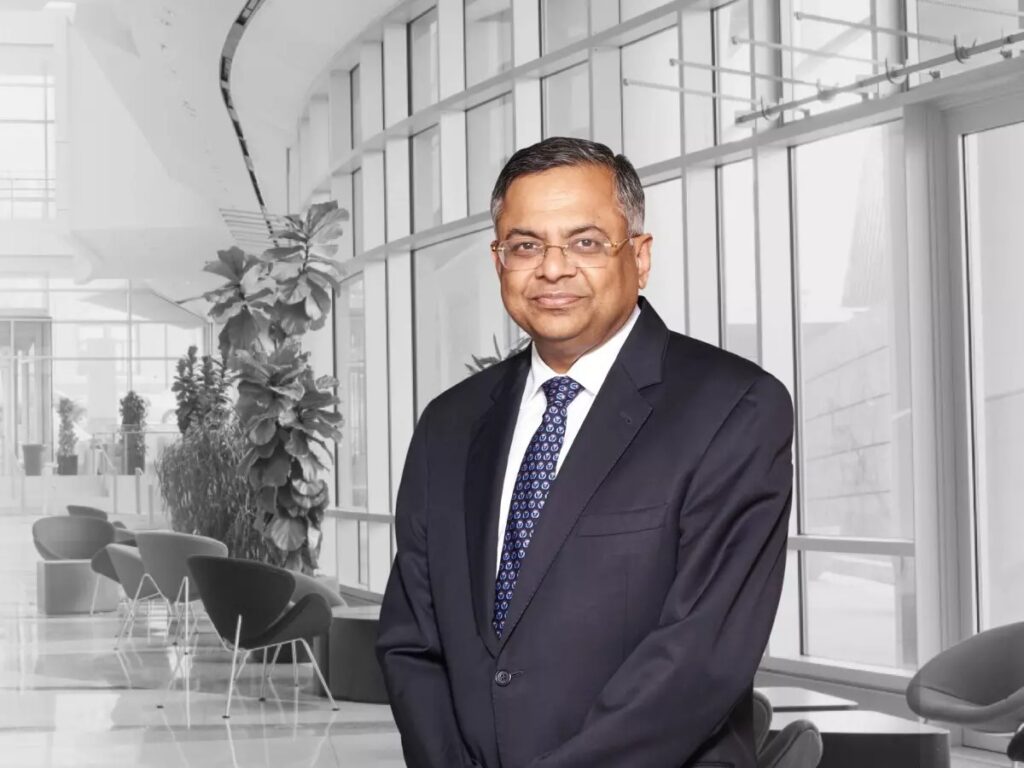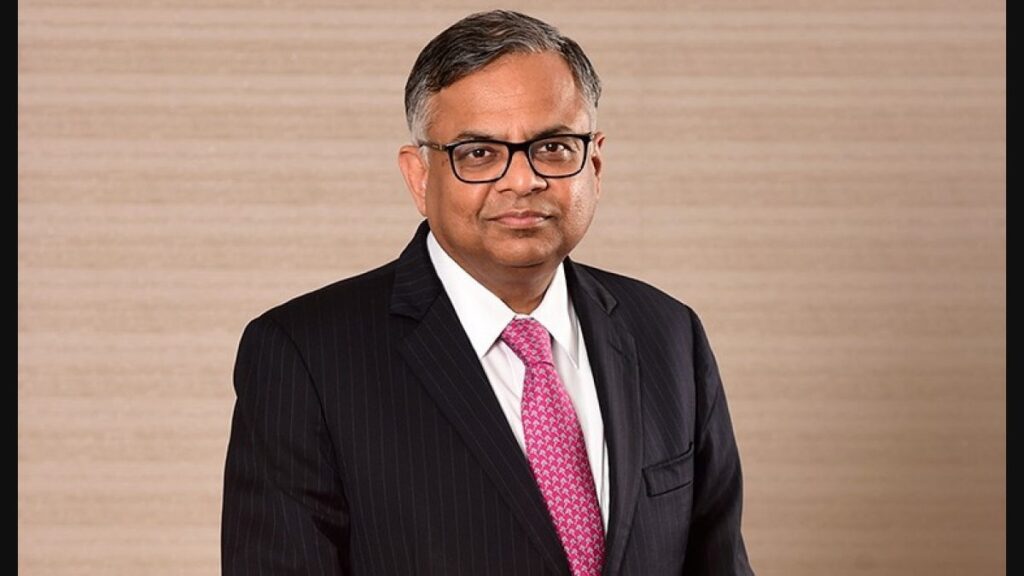In the wake of the tumultuous leadership struggle with Cyrus Mistry in 2016, Ratan Tata was careful about choosing a successor to lead Tata Sons. With the spotlight on him and investors on edge, Tata selected Natarajan Chandrasekaran, a decision that would prove pivotal in stabilizing the group and guiding it toward the future.
Chandrasekaran, who began his journey with Tata Group in 1987 as a graduate trainee, rose through the ranks to become the CEO of Tata Consultancy Services (TCS), the group’s flagship IT company. His deep understanding of technology and management made him the perfect candidate to lead the group into the digital era.
A Leader for Transformation
Fast forward to 2024, and Chandrasekaran is not only maintaining the stability of Tata Group but also preparing it for significant growth. The conglomerate, under his leadership, is making bold moves into high-tech manufacturing, including the semiconductor, electric vehicle (EV), and renewable energy sectors.
Chandrasekaran’s vision became clear during an event in October when he outlined the group’s plans to generate 500,000 manufacturing jobs in the next five years. This ambition is backed by on-ground investments, such as a Rs 27,000 crore semiconductor facility coming up in Assam and another planned chip manufacturing plant in Gujarat.

In addition to expanding Tata’s footprint in India, Chandrasekaran is forging global partnerships, collaborating with key players like Powerchip Semiconductor Manufacturing and Analog Devices, ensuring that Tata Group stays competitive in the evolving technology landscape.
Strategic Investments and Growth
Under Chandrasekaran’s leadership, Tata Group is making bold investments in emerging sectors. Tata Motors has committed Rs 18,000 crore to electric vehicles by 2030, while Tata Power has announced plans to invest up to Rs 75,000 crore in renewable energy over the next five to six years.
These investments reflect Chandrasekaran’s long-term vision for Tata Group, positioning it not only as a leader in traditional industries but also in the rapidly growing sectors of the future. According to Naveen Khajanchi, an executive coach, Chandrasekaran’s leadership is marked by a focus on value creation. “He is building on Tata’s legacy, ensuring the group continues to play a significant role in nation-building,” says Khajanchi.
The results of his leadership are evident in Tata Group’s financial performance. Between 2019 and 2024, the combined profit of listed Tata companies surged by an impressive 351%, from Rs 18,976 crore to Rs 85,510 crore, providing the group with the financial strength to pursue its ambitious goals.
Maintaining Legacy and Managing Transitions
As Tata Group navigates its growth under new leadership, the transition within the Tata Trusts, the largest shareholder in Tata Sons, has added another layer of responsibility for Chandrasekaran. Following the passing of Ratan Tata and the appointment of Noel Tata as head of Tata Trusts, it is crucial for the two entities to work seamlessly together to maintain the group’s legacy.

Former bureaucrat and biographer of Ratan Tata, Thomas Mathew, notes that Chandrasekaran is well-suited for the task. “He understands the ethos of the Tata family and the legacy left by Ratan Tata. He’s building on the strong foundations set by Ratan Tata, and knows what the group needs at this stage,” says Mathew.
Navigating Challenges in a Changing World
Despite the impressive progress, Chandrasekaran faces challenges, particularly the rise of artificial intelligence (AI) and a volatile global environment that has impacted TCS. In his address at TCS’ annual general meeting, he acknowledged the disruptive potential of AI, noting that while it would lead to job losses in some areas, it would also create new roles in emerging fields like data management.
Chandrasekaran has emphasized the need to reskill the workforce to adapt to these changes. “AI will automate tasks, leading to higher productivity and job losses in certain sectors, but it will also require more talent in others. We must embrace this transformation to equip people with new skills,” he said.
The Right Leader for Tata’s Future
As Tata Group enters a new era of innovation and disruption, it needs a leader who can preserve its core values while steering it toward the future. Natarajan Chandrasekaran, with his cautious approach to disruption and forward-thinking mindset, has proven to be the right captain for Tata Group. His leadership not only ensures the continuation of Tata’s legacy but also positions the group for success in the rapidly evolving global landscape.
